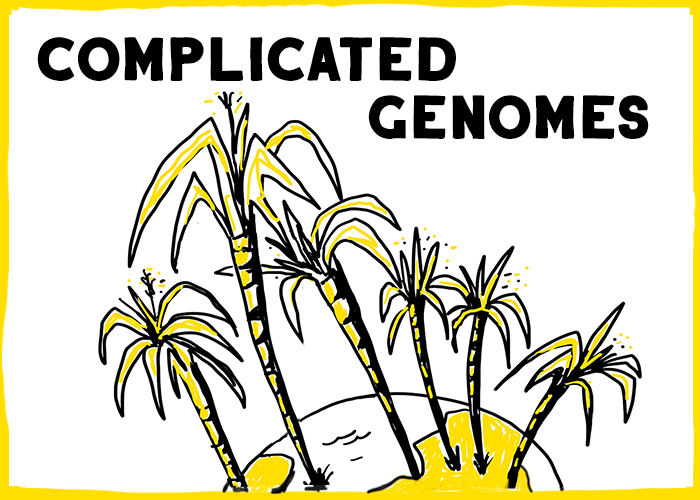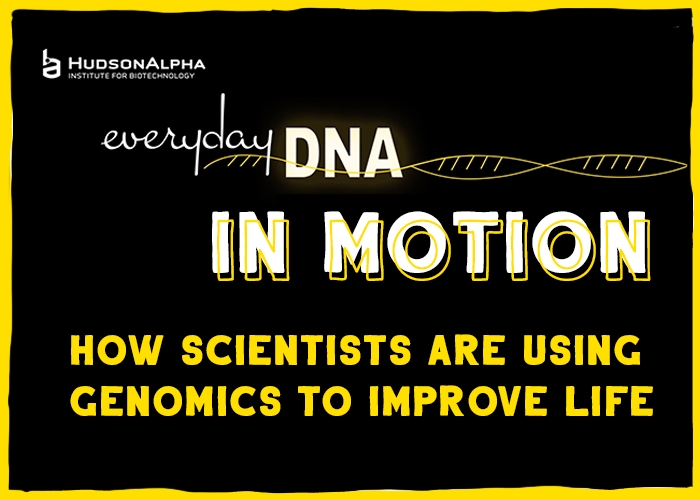An Everyday DNA blog article
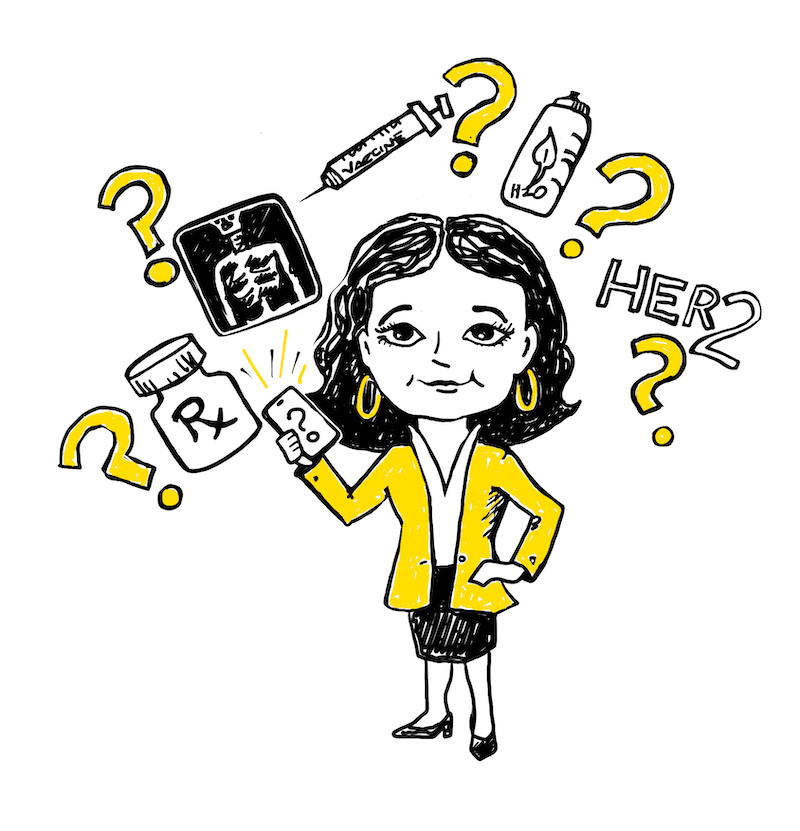 Written by: Sarah Sharman, PhD
Written by: Sarah Sharman, PhD
Illustrated by: Cathleen Shaw
In my family, I am the go-to person for anything related to science. Over the past year, several of my family members have dealt with health emergencies. My number is on everyone’s speed dial after doctor’s appointments because I can explain complex medical things in simpler terms. When discussing their cancer with a family member, I took the scary term ‘HER2 positive cancer’ and turned it into a more manageable explanation: ‘Your cancer cells have too many receptors for a molecule called HER2 on their surfaces, and it causes your cancer cells to grow very quickly. You’ll get a specific type of medicine to target those receptors.’
In our world today, understanding science is more important than ever. It touches every aspect of our lives, from the medicine that keeps us healthy to the technology we use daily. When we all understand science, we can make better decisions for ourselves, our communities, and our planet. Let’s learn about science literacy and how to make science more accessible to everyone.
What is science literacy, and why is it important?
Science literacy is the ability to understand science and use scientific knowledge in your everyday life. You don’t have to be a scientist to understand scientific concepts, nor does it require complex vocabulary or know-how of using advanced laboratory equipment. Science literacy is crucial in making choices related to health, nutrition, and the environment. It promotes exploration, encouraging us to ask questions and seek answers. Let’s dive a little deeper into some of the reasons science literacy is so important.
Individual health/well-being
Science literacy is incredibly important for understanding and managing your own health and well-being. It acts as your guide to knowing how your body works, from the beating of your heart to the importance of eating nutritious foods and staying active. Science literacy empowers you to make smart decisions about medical treatments and vaccinations. It gives you the tools to understand the facts, weigh the advantages and disadvantages, and choose what’s best for you and your family.
Adults encounter a myriad of healthcare decisions daily, from choosing the right medication to managing stress and adopting a healthy lifestyle. In these situations, being scientifically literate equips us with the tools to assess our options critically and make choices that promote our overall well-being. Consider the treatment choice for a chronic medical condition, like diabetes management. As adults, we must carefully evaluate various treatment options to determine the most suitable one for our specific needs.
To make an informed decision, we rely on many sources, including advice from healthcare professionals, medical research findings, and personal experiences of individuals who have managed their diabetes effectively. Additionally, we need to understand key measurements and metrics, like blood glucose levels, insulin dosages, and dietary requirements.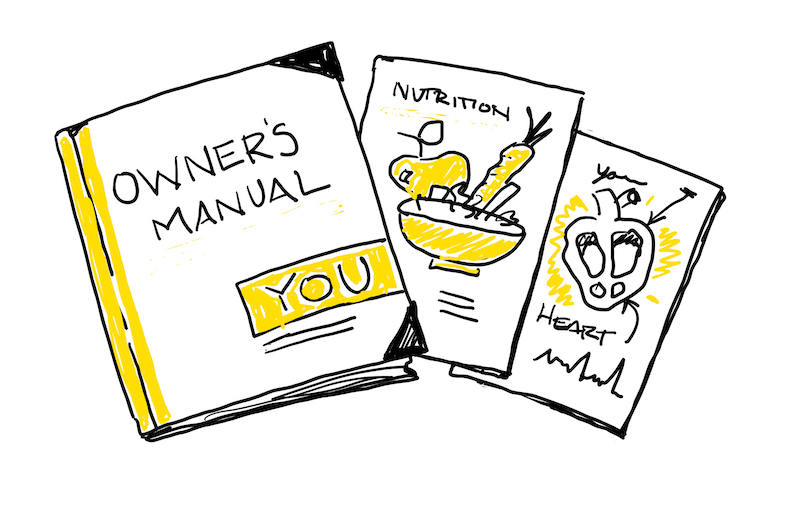
Research and Scientific Advancement
If you think of science as a giant puzzle, each discovery represents a puzzle piece. Science literacy helps scientists see how new puzzle pieces fit together with the ones they already have, creating a clearer and more complete picture of the world. When scientists are literate across many disciplines, they can ask important questions and find answers that contribute to our larger knowledge.
Science literacy can inspire future members of the STEM workforce. When young people are science-literate, they are more likely to become scientists themselves, ensuring a brighter future with more discoveries and solutions that benefit us all. Having a solid foundation of science knowledge helps strengthen students’ confidence and science identity, making them truly see a place for them in the STEM field.
Policy and ethical decision-making
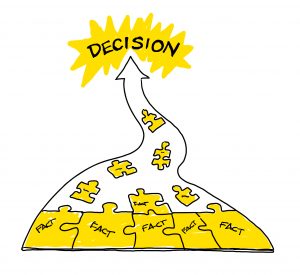 Scientific issues often become political and ethical issues, drifting out of the lab or classroom into the real world. Science literacy is the foundation for informed, reasoned choices in governance and ethics. Critical thinking skills help us assess the impact of policies and make ethical decisions that contribute positively to society and the environment.
Scientific issues often become political and ethical issues, drifting out of the lab or classroom into the real world. Science literacy is the foundation for informed, reasoned choices in governance and ethics. Critical thinking skills help us assess the impact of policies and make ethical decisions that contribute positively to society and the environment.
Some decisions involve questions about what is right or wrong, like using new technologies or protecting the environment. Science literacy helps us think about these ethical issues more clearly and make decisions that are fair and just. In society, different people have different needs and interests. Science literacy helps us weigh these interests fairly when making decisions. It’s like being a referee in a game to ensure everyone gets a fair chance.
Let’s say your jurisdiction is considering regulating direct-to-consumer genetic testing services. These services provide individuals with access to their genetic information, raising various policy and ethical questions. Having a person well-versed in how these tests work and what information they provide, including potential limitations and risks, would help weigh the benefits of expanding access to genetic information against the need to protect individuals’ privacy and ensure the accuracy of the results.
Media and science communications
Science literacy is a foundation of effective communication in media and science outreach, making complex scientific concepts accessible to everyone. It ensures that when journalists and scientists share information, they do so in a way that’s easy for all to grasp, making science both engaging and comprehensible.
We encounter a plethora of scientific information through various media channels, from news articles to social media posts. Being scientifically literate equips us with the critical thinking skills necessary to evaluate and engage with science communications effectively, ensuring we make informed decisions and promote scientific understanding within our communities.
People often turn to internet searches to decipher or validate what their doctors have told them, especially in the face of rapidly evolving health information (I’m looking at you, COVID-19). One critical aspect of science literacy is its role in helping us discern between credible and unreliable sources.
Forensics and the legal field
In forensics, scientists act as detectives, using their knowledge of biology, chemistry, and other sciences to gather and analyze evidence. Science literacy empowers them to uncover crucial clues, such as fingerprints or DNA, and reconstruct what happened at a crime scene. This scientific expertise is instrumental in piecing together the puzzle of criminal investigations.
Beyond the crime scene, lawyers, judges, and experts must be well-versed in scientific concepts to comprehend and present evidence effectively in court. This ensures that justice is served and innocent individuals are not unjustly accused or convicted. Science literacy empowers lawyers and experts to scrutinize scientific arguments and evidence to ensure a fair legal process and maintain the integrity of the justice system.
Science literacy contributes to crime prevention by enabling a deeper understanding of tools like DNA databases, which help identify criminals. A science-literate society can engage in discussions about the responsible and ethical use of such technologies, ensuring they are used fairly and justly. Science influences the creation of laws and policies related to crime and justice. Policymakers with science literacy can make well-informed decisions regarding forensic practices, surveillance methods, and criminal sentencing, ultimately shaping a legal framework that aligns with scientific advancements and societal values.
How do we prioritize science literacy at large?
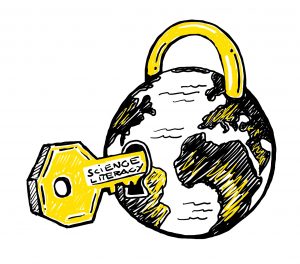 Ensuring that everyone has the opportunity to become scientifically literate is a fundamental step toward creating a more equitable and informed society. However, many individuals, often due to unequal access to quality education, lack the opportunity to develop strong science literacy. This educational divide can perpetuate disparities in health, employment opportunities, and participation in scientific advancements. By making science education accessible to all, we can bridge these gaps and work towards a more science-literate society.
Ensuring that everyone has the opportunity to become scientifically literate is a fundamental step toward creating a more equitable and informed society. However, many individuals, often due to unequal access to quality education, lack the opportunity to develop strong science literacy. This educational divide can perpetuate disparities in health, employment opportunities, and participation in scientific advancements. By making science education accessible to all, we can bridge these gaps and work towards a more science-literate society.
Part of the HudsonAlpha Institute for Biotechnology‘s mission is to provide educational outreach to nurture the next generation of biotech researchers and entrepreneurs and create a biotech-literate public. Largely through the Educational Outreach team led by Kelly East, HudsonAlpha brings genomics education and information to millions of individuals each year. Below are a few of the ways that the Institute promotes science literacy.
Improving science education
Improving and enhancing science education is a key driver of increased equitable science literacy. Prioritizing inclusive and accessible science education for all students, regardless of their backgrounds or circumstances, ensures that a broader and more diverse range of individuals can develop strong foundations in scientific knowledge and critical thinking skills. This empowers individuals to make informed decisions, participate in scientific endeavors, and contribute meaningfully to discussions on scientific issues, ultimately bridging gaps in science literacy and fostering a more equitable and informed citizenry.
HudsonAlpha’s Educational Outreach team is committed to helping schools enhance their science education offerings, whether bringing educational kits to the classrooms or bringing their students to real-life labs for hands-on learning. The team engages students from elementary school through graduate school. They encourage hands-on learning, critical thinking, and inquiry-based teaching methods to make science more engaging. Some of their offerings include field trips, after-school and summer camps, and internships.
Accessible Resources
Making science resources more accessible is a pivotal step toward achieving greater equity in science literacy. When scientific information, educational materials, and resources are readily available and accessible to a wider audience, it removes barriers that often hinder marginalized communities from engaging with science. This enhanced access allows everyone, regardless of socioeconomic status or geographic location, to explore, learn, and participate in scientific learning.
At HudsonAlpha, much effort is invested in making scientific resources easily accessible to teachers, students, government officials, and the public. This very blog you’re reading is an example of a science resource that is easily accessible to anyone with internet access. HudsonAlpha produces a podcast that makes science fun and entertaining. The Educational Outreach team provides many resources, including the HudsonAlpha Educator Resource Hub, Annual Guidebook, Field Guide Compendium, classroom kits, and digital resources.
Public engagement
When scientific institutions, researchers, and educators actively engage with the public, they create opportunities for individuals from all walks of life to connect with science personally. This engagement can include community science initiatives, science festivals, or accessible public lectures. By making science more approachable and relatable, these efforts ensure that people from diverse backgrounds feel included and empowered to participate in scientific discussions and activities. This inclusivity promotes a more equitable distribution of scientific knowledge and encourages individuals to become active contributors to scientific dialogues, ultimately enhancing overall science literacy and ensuring that science is an accessible resource for all.
Throughout each calendar year, HudsonAlpha hosts many public engagements, including tours, speaker series, workshops, and conferences. A new series from the Educational Outreach team called HudsonAlpha U Nights offers fun and engaging seminars focusing on different genetics topics.


